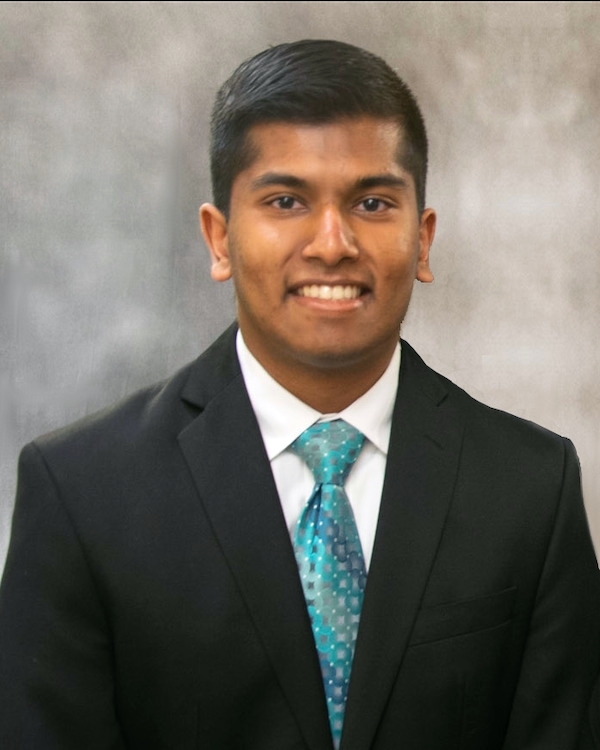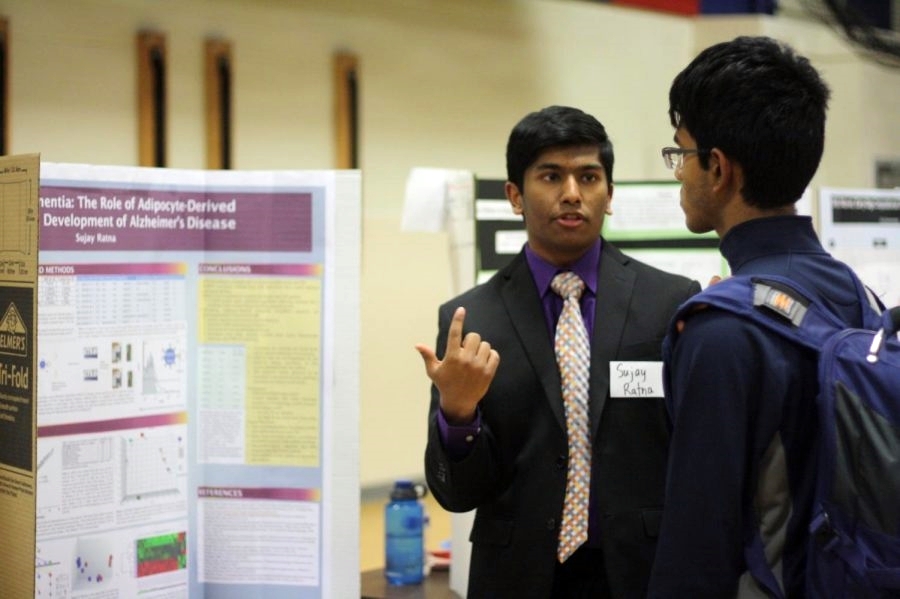Biology Graduate Named 2021 Phi Beta Kappa Key Into Public Service Scholar
Growing up in Olathe, Kansas, Sujay Ratna recalls, he was always told to think about and help others.

“I feel like I am embodying what it means to be a public servant to my community.” – Sujay Ratna
Since that time, Ratna – a 2021 Rutgers University–Camden biology graduate – never lost sight of the opportunities that he’s had. Just as importantly, he stayed keenly focused on spreading awareness about others who aren’t as fortunate.
As a Rutgers–Camden Civic Scholar, Ratna volunteered at local hospitals and schools in Camden, and advocated for those who cannot do so for themselves.
“These experiences all led me to a career in medicine intertwined with public service,” says Ratna, who minored in chemistry and sociology.
Ratna’s passion to pursue medicine to help others on a personal as well as population level earned him a nod as a 2021 Phi Beta Kappa Key into Public Service Scholar. The award, given by Phi Beta Kappa – the oldest academic honor society in the United States – recognized 20 exemplary students – out of more than 800 applicants nationwide – who have demonstrated a dedication to work in the public sector. Ratna follows in the footsteps of fellow 2021 Rutgers–Camden graduate Nitan Shanas, who earned the honor in 2020.
“I feel like I am embodying what it means to be a public servant to my community,” says the Centreville, Va., resident. “Advocating for patients has deepened my compassion for others, while also inspiring me to challenge the policies that impact health outcomes for patient populations.”

Ratna graduated from Rutgers–Camden with a 4.0 grade-point average in May.
The Rutgers–Camden graduate and his fellow Phi Beta Kappa scholars attended a virtual conference in late June to introduce them to public service careers at the local, state, and federal levels. His personal highlight of the conference was a one-on-one mentoring conversation with Nick Wilson, associate director of policy, planning, and coordination for the Baltimore Mayor’s Office of Neighborhood Safety and Engagement, to discuss how he could help improve gun safety as a premedical and medical student.
It wasn’t Ratna’s first introduction to the issue. As a premedical student, he was a member of Medical Students for Gun Safety, an advocacy team that influences national policy. During that time, he met with U.S. Rep. Jennifer Wexton, D-Va., to discuss gun safety measures and the bipartisan issues that she faces on the House floor.
“We both agreed that physicians are not well versed about the legality of gun violence and making legislation would guide physicians to take action,” he says.
As Ratna tells it, his dedication to this and other critical social issues came with seizing opportunities to impact his community – an outlook that he gained only after arriving at Rutgers–Camden. He recalls that, as a Rutgers–Camden Civic Scholar, he was an active part of the Camden community; his requisite 300 hours of volunteer work included serving as a tutor, where he frequently met one-on-one with parents, veterans, and students from various backgrounds.
“The diversity of students I encountered at Rutgers University–Camden was crucial to forming my values and thought process today,” he says.

As a premedical student, he was a member of Medical Students for Gun Safety, an advocacy team that influences national policy.
He also served as a health outreach associate with the Accountable Health Communities Project at Cooper University Hospital. His role on the project, which addresses social determinants of health for 75,000 Medicare and Medicaid beneficiaries, was to interview high-risk beneficiary patients and advocate for post-discharge quality of life.
“These experiences were particularly fulfilling and gave me insight into advocating for meaningful change through a public service career,” says Ratna, a member of the Rutgers–Camden Honors College.
Ratna also served as president and co-founder of South Asian Appreciation of Tradition and Heritage (SAATH) and vice president of the chemistry club on campus.
“Both experiences have helped me work with different kinds of students and people, just as I will be exposed to a diverse patient population as a physician,” says Ratna. “SAATH especially has informed me of not only my culture but also helped me appreciate the culture of others.”
For his exemplary efforts, Ratna was awarded the 2021 Lasting Legacy Student Leader Award, given to graduating seniors who have truly embodied what it means to be a phenomenal leader who serves the entire campus community.
In addition, he currently serves as the Premedical Trustee for the American Medical Student Association, where he represents the voices of more than 14,000 premedical members to the national board.
Ratna graduated from Rutgers–Camden with a 4.0 grade-point average in May 2021 and, through the FlexMed Early Assurance Program, took one step closer to his dream of becoming a physician when he was admitted to the Icahn School of Medicine at Mount Sinai. He has now decided to take a gap year before matriculating, with plans to one day conduct clinical research and engage in public health policy – the latter preferably in a role for the U.S. Department of Health and Human Services.
“In my future roles,” he says, “I will ensure that not only am I a better health care provider, but that I might help train a better generation of physicians.”


